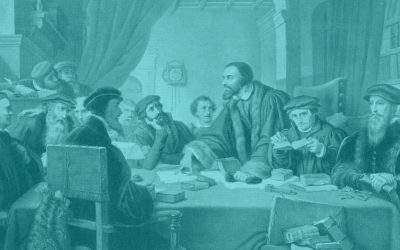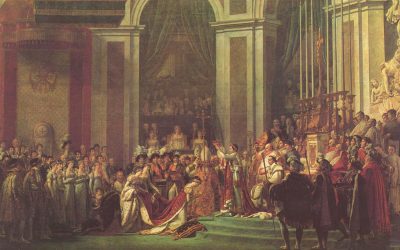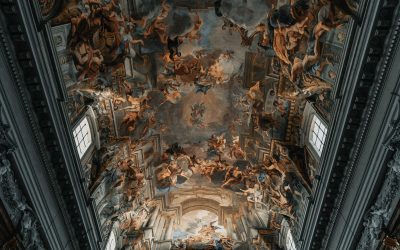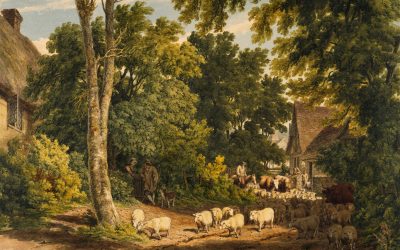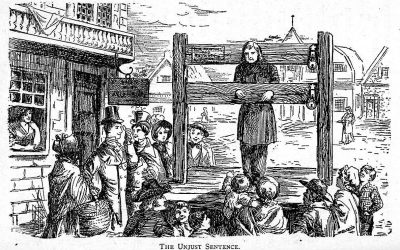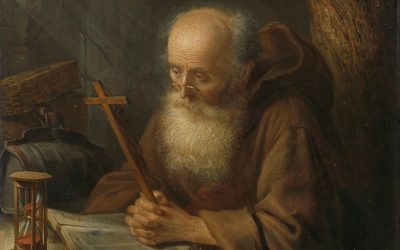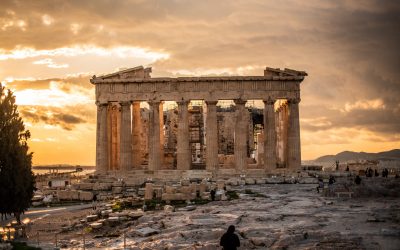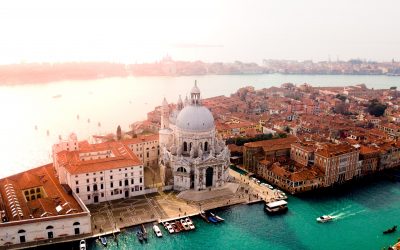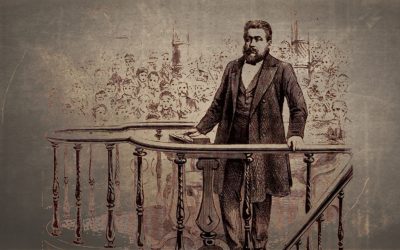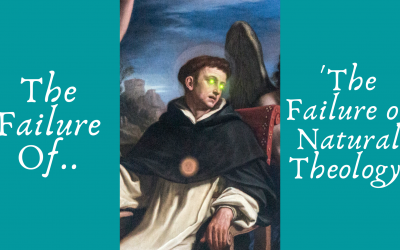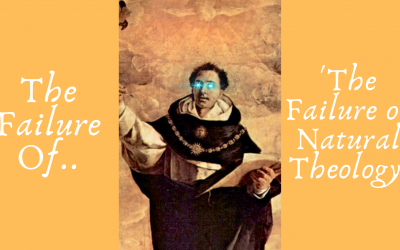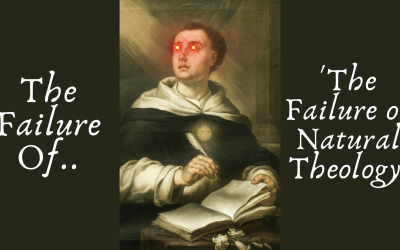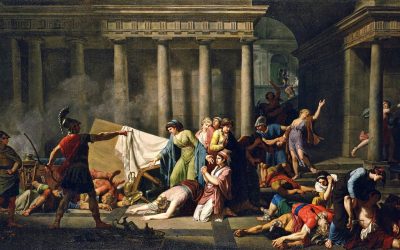Calvin’s Classical Theism
at minimum, we should be able to conclude from the evidence presented that Calvin held to the classical formulation of divine simplicity.
Limitation of Act by Potency
Contemporary Thomistic studies largely assumes the origins for Thomas’s doctrine “limitation of act by potency” is to be properly and neatly located in Aristotle’s corpus. According to W. Norris Clarke, however, such an assumption is misguided…
Yes, We Still Believe Sola Scriptura—A Response to Dr. Sam Waldron
Why do we now turn a suspicious eye toward our forefathers? Have we really become skeptics? Confessional agnostics?
When Scripture Becomes A Wax Nose
God’s Scriptural appeal is made to rational creatures. And when, by grace, a rational creature is made to accept and trust in the truth of Scripture, his rational appetites are not extinguished but improved.
Philosophy & Preambles of Faith
Philosophy, then, is assigned to inquiry concerning the preambles of faith. And theology is assigned to inquiry concerning the articles of faith revealed through Scripture.
Salvation Through Reason: Did Thomas Teach It?
Allegedly, Thomas believed that if a man was sharp enough to do so, he could hypothetically reason his way into the gospel, so to speak.
Benjamin Keach’s Employment of Aristotle in ‘Tropologia’
In the below verbiage, it becomes clear that Benjamin Keach positively and helpfully employs Aristotle.
Jeff Johnson, Moved Movers, & Ghostly Paradoxes
Johnson seems to believe there is an apparent contradiction in need of explanation. There is, as it were, a paradox in need of resolution. But, as we shall see, such paradoxes are but ghostly phantoms lacking substance.
Prudent Knowledge
All Christians ought to press on to know God. Not all Christians will know God to the exact same degree.
A Note on Political Theology
The Noahic Covenant remains. It’s institution is neither causal nor characteristic of the kingdom/domain of darkness. But neither is it’s administration granted to the Redemptive Kingdom, or the Kingdom of the Son.
An Elementary Essay Contra Modal Collapse
If God is simple, it follows He isn’t made up of anything more basic than Himself to be what He is. In other words, God is non-composed. All that is in God is God. An apparent difficulty arises, however, when we consider God’s will as it relates to the created world.
The Decline of Natural Theology
There isn’t a single place upon the timeline of history to which we might point in an attempt make an historical demonstration of natural theology’s demise.
The Kingdom & Its Implications
There has been much speculation as to the identity and timing of God’s kingdom. Contemporary speculation on the kingdom of God tends to domesticate and separate the kingdom from Christ and His work, and it fails to account for present-kingdom language used throughout the New Testament.
Uncovering Simplicity in Scripture
Like the word “Trinity,” the word “simplicity” eludes those making the demand for an express, biblical reference. So, how do we know if it’s biblical?
Augustine, Lewis Ayres, & 1 Corinthians 15:28
As the all-too-familiar trinity debate rages on, one vital piece of the “discourse puzzle” is still missing—hermeneutics.
The Way Jesus Uses Nature
Appeals to natural revelation, and thus the assumption of a natural theology, are rife throughout the didactic work of our Lord Jesus Christ.
The Order of Theology, Classical, and Presuppositional Apologetics
Part of our current ailment is the inability for Christians to relate subjects of theology to one another in terms of their respective, causal relationships.
A Response to Dr. Sam Waldron
It is never a good day to disagree with Dr. Sam Waldron. In spite of our disagreements, I have leagues-worth of respect for this man…
Natural Theology in the Puritan, Thomas Watson
Thomas’ five ways are well known. But fewer know that another Thomas had even more.
How Sola Scriptura Presupposes Natural Theology
Sola Scriptura must be defined correctly, not only to avoid subjecting Scripture to the dictates of men, but also that we might retain the requisite tools (assumptions) and categories needed in order to make sense of the Scriptures in the first place.
What Fired Nurses & Theological Neocons Have in Common
Hospitals aren’t the only ones fulfilling their own doom-and-gloom prophecy. Modern theological conservatives are doing the very same thing.
Actus Purus & the Project of Redemption
If there is potential in God, there is potential in God’s judgment. If there is potential in God’s judgment, satisfaction is not necessary…
Considering God’s Transcendence & Immanence
But the temptation to “fix” this tension by making the divine essence the transcendent “part” in God, and the Trinity the immanent and complex “part” in God is misguided since it wouldn’t fix any problem at all.
Spurgeon on the Stiff & Stilted Pastor
“I am persuaded that one reason why our working-men so universally keep clear of ministers is because they abhor their artificial and unmanly ways.”
The Failure of ‘The Failure of Natural Theology’—A Review (Chs. 7-9)
By the time I reached the end of this book, I simply didn’t see any God left. All that remained was creature. Such is the end of theistic personalism and/or process theism.
The Failure of ‘The Failure of Natural Theology’—A Review (Chs. 4-6)
“But who is to say both non-motion and motion couldn’t exist in the Trinity?”
The Failure of ‘The Failure of Natural Theology’—A Review (Chs. 1-3)
From obviously selective quotation, not only of Thomas, but also of John Calvin, John Owen, and others, to blatant denial of Christian orthodoxy, this book doesn’t so much represent a nuance within the orthodoxy of Reformedom, but a departure from the first principles of Christianity altogether.
An Essay on Covenantal Natural Theology — (Part VI)
Owen, thus, represents a full-fledged Reformed orthodoxy on this matter. There are others, such as Johann Heinrich Alsted, Stephen Charnock, Herman Witsius, and Petrus Van Mastricht. Yet, any differences between them would be mostly accidental and not relevant to the overall point of the present essay.
An Essay on Covenantal Natural Theology — (Part V)
Turretin… no doubt understood natural theology in relationship to the covenant of works and the covenant of grace.
An Essay on Covenantal Natural Theology — (Part IV)
Franciscus Junius construes the state of man in a twofold manner when he writes that there are “two states of men, namely, the state of integrity when he was created by God and the state of corruption arising from man’s fall by his own choice.”

